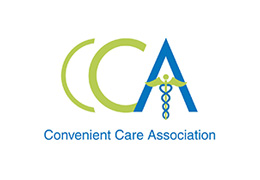Acid reflux is a common issue that can affect anyone, but the condition is especially common among truckers. Long hours on the road, eating at odd hours, and limited access to healthy food can make acid reflux worse.
Better understanding the condition is key so you can manage the symptoms and feel at your best.
Acid reflux isn’t about just dealing with a little—or a lot—of discomfort. It’s a disease of the stomach and esophagus. Ignoring it can lead to serious health problems, including difficulty breathing, ulcers, and even esophageal cancer.
This guide will provide you with the information you need to better understand acid reflux, learn the triggers, and find effective ways to manage it so your long hauls are more comfortable and enjoyable.
What is acid reflux?

Acid reflux happens when stomach acid flows back into the esophagus, the tube that connects your throat to your stomach.
This stomach acid is a liquid in your stomach that helps you kill harmful bacteria and process food. It’s created by special cells that line your stomach, and when you eat, your brain signals these cells to make acid. Without it, your body would not be able to properly digest food.
But sometimes, there is a backflow of this acid, which can cause uncomfortable symptoms like heartburn and a sour taste in your mouth. While having some acid reflux from time to time is normal, if it happens frequently, it can turn into a more serious condition called gastroesophageal reflux disease (GERD).
When this occurs, it can cause major discomfort and lead to other problems. It’s important to recognize the early signs of acid reflux so you can prevent it from getting worse and developing into GERD.
How common is acid reflux?
Acid reflux is more common than many realize. Nearly 30% of U.S. adults experience GERD symptoms weekly (Cedars-Sinai).
This means that for nearly 1 in 3 Americans, acid reflux can significantly impact quality of life.
Truckers who experience long hours on the road and don’t have regular meal schedules are at an even higher risk for developing this condition. Understanding how common this issue is can be the needed push to finally get treatment.
Is acid reflux the same thing as GERD?
While often used to mean the same thing, acid reflux and GERD are not the same.
- Acid reflux is the occasional backflow of digestive acid and stomach contents.
- GERD is a chronic condition defined by symptoms of acid reflux symptoms happening more than twice a week (Cleveland Clinic). Understanding the difference can help you find the right treatment.
GERD includes the uncomfortable side effect of acid reflux with a burning feeling in the throat, and if left untreated, it can lead to serious complications.
What are the symptoms of acid reflux?
Common symptoms of acid reflux include:
- Heartburn: A burning sensation in the chest or throat that often gets worse after eating or when lying down.
- Regurgitation: A sour or bitter taste in the mouth when stomach contents backflow, which can be quite unpleasant.
- Sore throat: A feeling of irritation or lump in the throat, which can make swallowing difficult.
- Difficulty swallowing: A sensation that food is stuck in the throat, which can lead to anxiety around eating.
- Nausea: An unsettled stomach, often after meals, which might discourage you from eating.
These symptoms can interfere with daily activities and can be especially bad after large meals or when lying down (Northwestern Medicine). Knowing the symptoms allows you to take immediate action, such as changing your diet or meal schedules, trying over-the-counter drugs, or getting medical treatment.
How acid reflux happens
Acid reflux mainly happens because of a problem with a muscle called the lower esophageal sphincter (LES). This muscle acts like a valve between the esophagus and the stomach. When it doesn’t work properly and relaxes too much, acid from your stomach can leak into the esophagus.
Several factors can cause the LES to relax too much:
- Hiatal hernia: A common condition where part of the stomach pushes up through the diaphragm (base of your chest), which can make acid reflux worse (Cleveland Clinic).
- Heredity: Findings vary, but a recent twins study (2018) shows that around 31% of GERD case cases can be traced to genetic factors (Medical News Today).
- Obesity: Carrying extra weight puts more pressure on your stomach, making it easier for acid to escape into your esophagus.
- Smoking: Tobacco can relax the LES and increase the amount of stomach acid.
Foods that make acid reflux worse
Your diet plays a significant role in acid reflux. Common food triggers include:
- Spicy foods: Spicy dishes such as salsa, sriracha, jalapeño peppers, chili paste, or curry can irritate the esophagus and lead to discomfort (Tums).
- Fatty foods: High-fat meals, such as fried food, fast food, or pizza, slow digestion and increase stomach acid, which can contribute to reflux (Gastroenterology Consultants, John Hopkins Medicine).
- Chocolate: Unfortunately for sweet tooths, chocolate contains caffeine, theobromine, and other compounds that can relax the LES, allowing acid to escape (Glencoe Regional Health).
- Citrus fruits and juices: High acidity in foods like lemons, limes, oranges, pineapples, blueberries, and grapefruits can worsen symptoms and lead to discomfort. The list even includes grapes and wine (Oral Health Foundation).
- Garlic and onions: These can stimulate acid production and should be approached with caution. Raw onions are especially acidic (Digestive Health Centers).
- Alcohol and carbonated drinks: Both relax the LES and increase stomach pressure, making them common triggers. Trouble drinks include beer, hard liquor, soda, and sparkling water (UChicago Medicine, Hartford HealthCare).

What foods make your acid reflux better?
While certain foods can trigger reflux, others can help with symptoms. Incorporating these into your diet may provide relief:
- Non-citrus fruits: Bananas and melons can help neutralize acid in your stomach.
- Vegetables: Most are low in fat and high in fiber, making them a healthy choice.
- Whole grains: Foods like oatmeal, cereal, quinoa, and brown rice can absorb stomach acid and help reduce symptoms.
- Lean proteins: Chicken, fish, turkey breast, and pork chops are less likely to trigger reflux and can provide essential nutrients, but avoid smoked, cured, or heavily processed meats (Houston Heartburn and Reflux Center).
- Ginger: Known for its anti-inflammatory properties, ginger can soothe the stomach and is easy to incorporate into meals.
Is acid reflux even a big deal? Can I just ignore it?
Ignoring acid reflux is not a good idea.
Regular acid exposure can lead to major complications such as esophagitis, Barrett’s esophagus, or an increased risk of esophageal cancer (Northwestern Medicine).
If you experience symptoms more than twice a week, it’s vital to consult a doctor. Ignoring the symptoms can make your acid reflux get much worse and harder to treat in the long run.
Affordable, convenient medical treatment that works
Trucker’s Body Shop is a health and wellness site by truckers for truckers. We’re here to connect fellow truckers with convenient, high-quality care and affordable prescription drugs.
We can quickly, privately connect you to a doctor in an online e-health visit using your phone or tablet.
Every day, Trucker’s Body Shop connects hundreds of men and women to affordable online healthcare with meds delivered directly to your doorstep or your cab.
Medical treatment options for acid reflux
For more severe acid reflux (GERD), your medical care provider might recommend drugs or surgery.
- Prescription proton pump inhibitors (PPI): These PPI drugs include esomeprazole (Nexium), lansoprazole (Prevacid), omeprazole (Prilosec), and dexlansoprazole (Dexilant). Omeprazole is perhaps the most commonly known prescription option. While usually well tolerated, omeprazole can cause side effects such as diarrhea, headaches, or nausea (Mayo Clinic).
- Prescription H-2 blockers: These include prescription-strength drugs like famotidine and nizatidine. Side effects from these medicines are generally mild (Mayo Clinic).
- Surgery: Treatments include fundoplication, where the top of the stomach is wrapped around the lower esophageal sphincter to prevent reflux; the LINX device, which uses magnetic beads to keep acid in the stomach; and transoral incisionless fundoplication (TIF), which tightens the lower esophagus without any cuts for quicker recovery.
Weight-loss drugs and weight-loss surgery may also be considered, due to the link between obesity and GERD.
Can acid reflux just go away on its own?
No, severe acid reflux (GERD) doesn’t just go away on its own. Unfortunately, some people think that their acid reflux disappears because the symptoms like heartburn are gone.
But as GERD gets worse, it’s due to changes in the esophageal lining. Your body adjusts to accommodate your acid reflux so that you can no longer feel the symptoms, putting you at greater risk for breathing problems like emphysema, bronchitis, or asthma. It can also lead to scarring of the voicebox and esophageal cancer (WebMD, American Medical Association).
Why are truckers more likely to have acid reflux?
Truck drivers have a few extra challenges that make them more likely to deal with acid reflux. Here’s why:
Irregular eating habits
Long hours on the road mean truckers often skip meals or eat at odd hours. Eating can even be a way to ease boredom and pass the time. These patterns can mess with the way your body digests food, causing more acid to build up. When truckers finally do eat, they might have bigger meals, which makes acid reflux worse.
Limited healthy food options
Fast food and gas station snacks are easy options, but they’re usually high in fat, sugar, and salt. These types of foods are harder to digest and can cause more stomach acid to leak into your esophagus. It’s best to plan ahead and pack healthier snacks like fruits, nuts, seeds, low-sodium jerky, or grilled meats when possible.
Stress
Truck driving is stressful, whether it’s tight schedules, traffic, or just the hours alone. Stress can cause your body to produce more stomach acid, making acid reflux worse. Find ways to lower your stress, like deep breathing or stretching during breaks.
Sitting for long periods
Sitting for most of the day puts pressure on your stomach, which can push acid up into your throat. Taking short walks or doing light stretching during breaks can help reduce acid reflux.
Not drinking enough water
Many truckers avoid drinking water so they don’t have to stop for bathroom breaks, but dehydration makes acid reflux worse. Water helps dilute stomach acid and supports digestion, so keep a water bottle on hand.

Smoking
Smoking is common among truckers, but it weakens the muscle that keeps stomach acid from coming up into your esophagus. If you smoke, try cutting back or quitting to help reduce your acid reflux.
Poor sleep
Irregular sleep can also make acid reflux worse, especially if you eat right before lying down. Sleeping with your head raised can help keep the acid in your stomach where it belongs.
What’s the connection between acid reflux and obesity?
Obesity and severe acid reflux (GERD) are closely linked together, especially when there is extra fat around the stomach area. Here’s why:
- Extra pressure on the stomach: When you carry extra weight, especially around the belly, it puts more pressure on your stomach. This pressure can push stomach acid up into the esophagus.
- Weakened valve (LES): The lower esophageal sphincter (LES) is a muscle that acts like a valve to keep stomach acid from flowing up into your throat. Obesity can weaken this valve, making it easier for acid to escape.
- Hiatal hernia risk: Being overweight also increases the chance of developing a hiatal hernia. This is when part of the stomach pushes up into the chest area, making reflux worse.
- Higher risk of complications: Obesity can make GERD symptoms worse and increase the chances of serious problems like esophagitis, Barrett’s esophagus, or even esophageal cancer because of longer exposure to acid.
In short, excess weight, especially around the belly, makes GERD worse by increasing pressure on the stomach and weakening the valve that keeps acid where it belongs. Managing your weight can help control acid reflux symptoms.
Other ways to manage acid reflux
Making some daily adjustments can improve symptoms.
Stress management
High stress levels can make acid reflux a lot worse. Techniques such as deep breathing, meditation, prayer, and regular breaks during long hauls can help reduce stress and its impact on your digestive system.
Better sleep posture
Raising your head while sleeping can prevent nighttime symptoms and improve the quality of your sleep so you can be well-rested and focused for the road. Aim for a 45-degree angle if possible, and consider using a wedge pillow.
Avoid snacking close to bedtime
Eating smaller, more frequent meals can help reduce pressure on the throat, stomach, and esophagus. Avoiding late-night snacks is especially important. Aim to eat no later than three hours before bedtime.
Over-the-counter medication
For occasional acid reflux, over-the-counter (OTC) medications can help. Antacids, like Tums or Rolaids, can quickly relieve heartburn by neutralizing stomach acid (Pfizer).
Alternative treatments
Herbal remedies like chamomile or slippery elm can soothe the stomach lining, though it’s essential to consult a healthcare provider before starting any new treatment (Medical News Today, Harvard Health). Even all-natural, homeopathic, or OTC supplements may interact with other medications or carry separate health risks.
Exercise
Regular physical activity can help manage weight and reduce reflux symptoms. Aim for moderate exercise, such as walking or light stretching, to avoid worsening symptoms while maintaining your health.
Tips for managing acid reflux on the road

For truckers, managing acid reflux can be challenging, but there are some practical strategies.
- Healthy foods at truck stops: Look for options like salads, grilled chicken, and non-citrus fruits. Many truck stops now offer healthier choices.
- Ways to get in exercise: Take breaks to walk or stretch when refueling or unloading. Try simple exercises, such as squats or lunges.
- Quitting smoking: If you smoke, quitting can significantly improve your symptoms.
When to seek treatment for acid reflux
If lifestyle changes and over-the-counter medications do not help, it may be time to seek medical treatment. Left untreated, acid reflux can lead to serious complications.
How to seek treatment online
Trucker’s Body Shop is dedicated to connecting truckers with convenient, high-quality care and affordable prescription drugs. We can quickly and privately connect you with a doctor in an online e-health visit.
Every day, Trucker’s Body Shop connects hundreds of people to convenient and affordable online healthcare, with medications delivered directly to their doorstep or truck—often within 48 hours. This service is designed to fit your busy schedule while ensuring you get the care you need.
Here’s how it works:
- Quick, private consultation: Connect with a doctor through a simple online e-health visit. No need to drive to a clinic—just a few clicks and you’re set. Most drivers can get a same-day or next-day appointment.
- Personalized treatment plan: After your e-visit, get a personalized treatment plan tailored to your needs. Whether it’s Prilosec or Prevacid, we connect you with affordable treatments that really work.
- Medications delivered to your doorstep or truck stop: Any prescribed medication is shipped directly to you—fast. Most orders are delivered within 48 hours.
Bottom line
Managing acid reflux is important. Feeling good now and your long-term health are important. By recognizing symptoms, avoiding triggers, and making lifestyle changes, you can significantly improve your quality of life. Don’t ignore your health. Take steps to ensure that you can continue to drive safely and comfortably, both on the road and home to your family.
Frequently asked questions
How can I improve my sleep when I’m an OTR driver?
Working odd hours, often driving overnight, it can be hard to get consistent high-quality sleep—but it is possible. Being well-rested is critical for staying focused on the road and managing your acid reflux (IFFGD).
Here are some tips for getting better sleep when you work an on-the-road job (CDC):
- Choose your parking spot wisely. Keep safety and quiet in mind.
- Block out the light. Close all the curtains and shades or wear a sleep mask.
- Dim the noise. Use ear plugs, a fan, or a “white noise” machine to block out noises. Play a YouTube video designed to help you fall asleep and stay asleep. Listening to the sound of rain and thunder blended with soft music can help. Make sure to silence your ringtone.
- Keep a cool temperature in your cab or bedroom. People generally sleep better when it’s cooler. Turning on a fan can help.
- Get a comfortable mattress. You spend roughly one-third of your life sleeping, so don’t skimp on your mattress.
- Sleep when your body naturally feels sleepy. Sleeping at the same time every day, whether it’s 5 p.m. or 3 a.m., helps your body find its rhythm so it can fall asleep faster and get better quality sleep.
- Exercise throughout the day. Walk a few laps around the station when you fill up your truck or pull over for lunch. Do stretches, squats, and lunges in the cab. Physical activity during the day improves your quality of sleep.
Can acid reflux or GERD cause weight gain?
For most people, no. But as GERD symptoms get worse, some people may become more inactive, which can lead to weight gain (UChicago Medicine).
What’s the difference between acid reflux and heartburn?
Acid reflux and heartburn are not the same thing, but they are closely connected. Heartburn is caused by acid reflux and is often the most common symptom.
With heartburn, you feel a burning sensation in the middle of your chest right below your sternum. The feeling is especially noticeable after meetings or when you lie down at night (WebMD).
Does driving on bumpy roads make acid reflux worse?
Possibly. The impact of road conditions on acid reflux has not been widely studied, but some health experts recommend not driving right after eating if you have severe acid reflux (MAPFRE). Instead, give your body time to digest the food. Light physical activity, like walking around for five minutes, can help along with wearing loose-fitting clothing (not jeans).
Sitting up straight in the driver’s seat can also help. Slouching after a meal can trigger heartburn because it puts stress on your abdomen and forces stomach acid to go in the wrong direction (Harvard Health).












